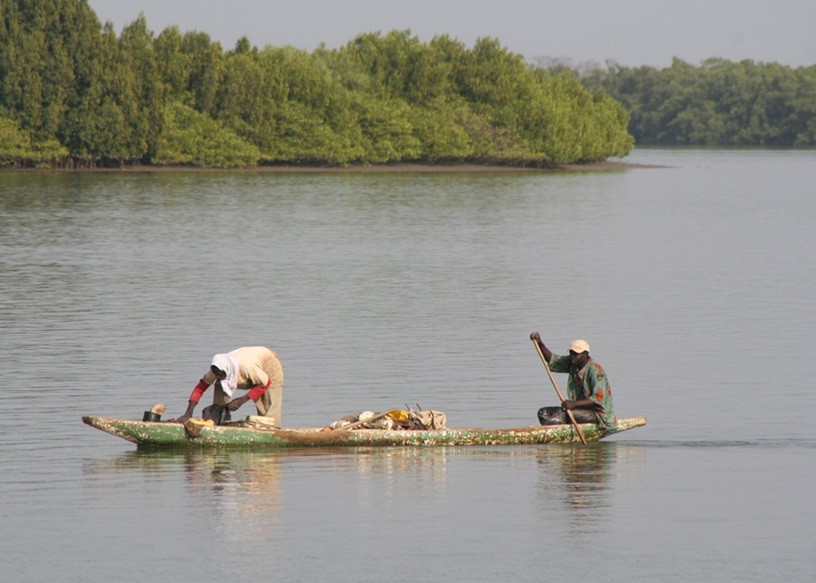Mangrove trees’ natural flood protection to be studied in £1.85m project

The ability of mangrove trees to protect coastal regions in Africa against catastrophic flooding as a result of climate change is being investigated as part of a major new Manchester Met research project.
From fish nurseries to coastal defence mangroves are more than just mere trees - they are one of the only trees that can withstand salt water.
This means they can survive and thrive in harsh sea conditions, providing a natural buffer against major events like storms that are increasing due to climate change.
Senior Lecturer Dr Martin Sullivan, from Manchester Met, has been awarded a £1.85 million grant to investigate the use of mangroves as a nature-based solution to limit flood risks in coastal regions in West Africa. The project aims to empower local communities to address environmental challenges.
Dr Sullivan said: “Mangroves provide many important resources to the communities that live near them.
“They provide wood for charcoal burning, they provide wood for timber and even act nurseries for the fish that people on the coast catch and eat. These uses mean that there are many pressures for mangroves to be cut down. But they also provide a really important service to these communities by protecting them from flooding.
“We work with communities to harness their knowledge, and to understand how different interventions in the past have affected their use of mangroves.”
Mangroves are known for the protection they offer against major events like storms and tsunamis, however, they are being cut down even faster than tropical rainforests.
Dr Sullivan said: “How do we protect mangroves while also supporting communities and sustaining livelihoods at the same time? Actions have consequences for people’s livelihoods and consequences for the physical dynamics of the ecosystem.
“It’s a very big and exciting project. We’re bringing together a lot of different people with very different areas of expertise.”
The grant was awarded by the Natural Environment Research Council and the three-year project will be led by Manchester Met and joined by Njala University, Sierra Leone; The University of Manchester and The University of Lincoln.
Dr Martin Sullivan and his team will be travelling to their first major field work in Sierra Leone in October.








